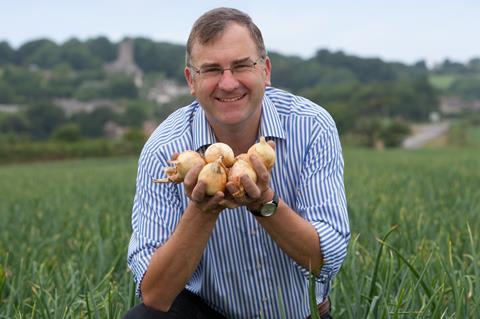
Ginsters is hoping to boost Brits’ knowledge of where their food comes from with its latest marketing drive.
The business is launching a Sow Your Own Slice service to highlight the growing, harvesting and baking process of their slices.
The service gives consumers the opportunity to sign up online to have potato and onion seeds sown on their behalf at the farm that supplies vegetables for the Ginsters range. Once grown, and after receiving updates along the way, the vegetables will be harvested and then made into pastry slices that are sent to consumers in a personalised pack.

The scheme follows research by Ginsters that revealed many consumers (47%) admit to having poor or patchy knowledge of how the veg they eat is grown. A fifth have never seen a vegetable grow at all, while 79% say they have never personally grown a vegetable from seed to harvest.
Among the vegetables people are most in the dark about, celery comes out top, with 24% of Brits not sure of where or how it grows, followed by mushrooms (18%), courgettes (17%), swedes (16%) and onions (10%). Just 4% of the nation is unsure about how potatoes and carrots are grown.
Nearly half (42%) admit to being clueless about how long it takes vegetables to grow, with 86% getting the answer to how long it takes potatoes to grow (12-14 weeks) wrong.
“At Ginsters we’re proud of the fact that we source many of the ingredients for our products, from our neighbours at Hay Farm in Cornwall,” said Ginsters marketing manager Sarah Babb.
“We hope our Sow Your Own Slice service will take people back to the roots of fresh food and open people’s eyes to how the veggies we eat are grown.”
Jeremy Oatey, farmer at Ginsters supplier Hay Farm, said his team works hard all year round growing vegetables for Ginsters products.
“As we’re so close to it, it’s easy to forget that not everyone knows where these vegetables come from and how they’re grown, so I’m pleased that with Ginsters, we’re able to shine a ‘spud-light’ on this apparently rare knowledge.”
































No comments yet